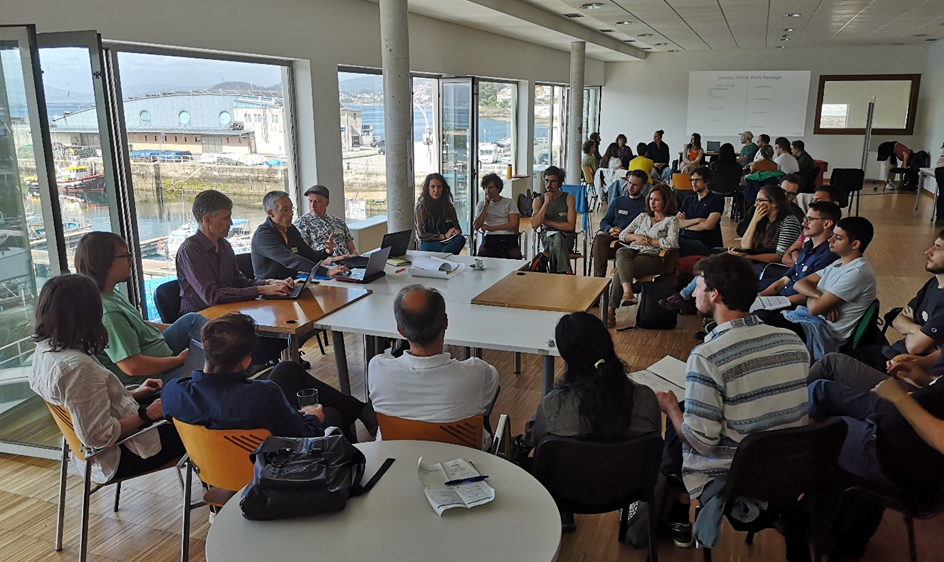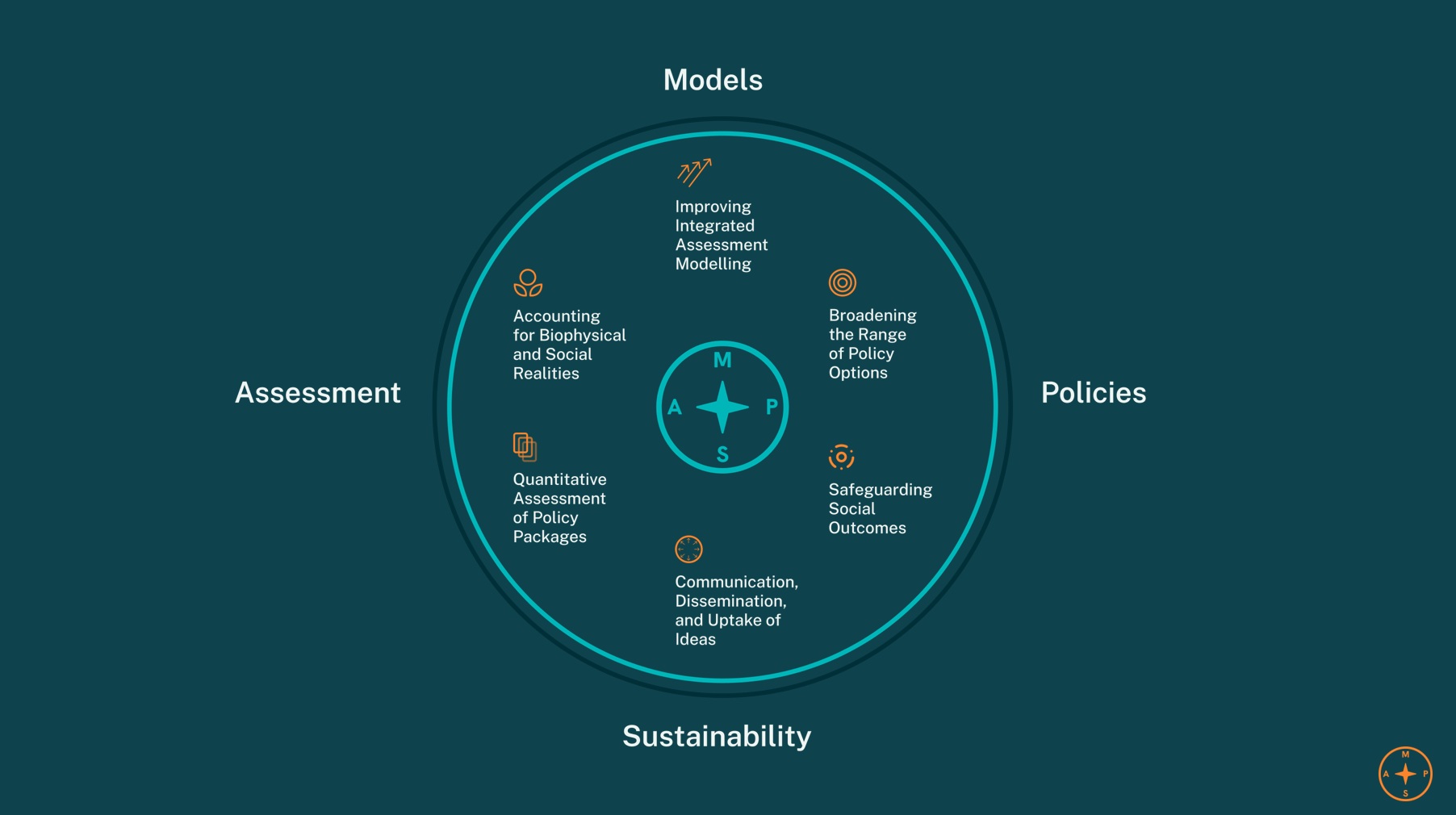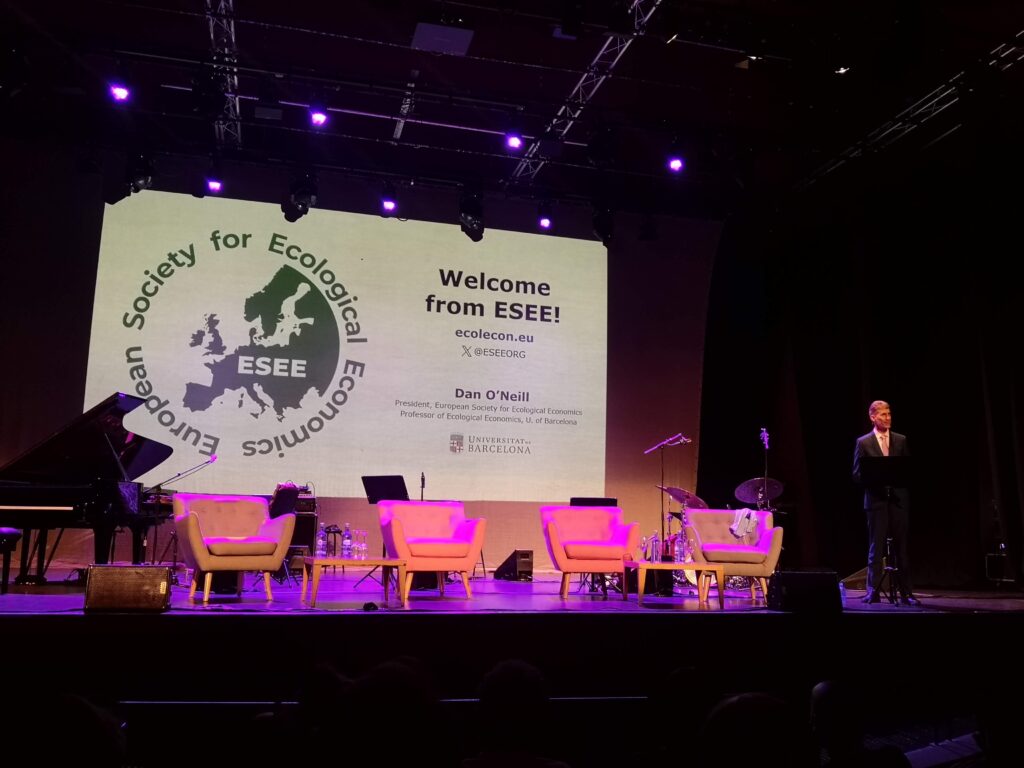Setting the course for four years of post-growth research
On the weekend of June 14–16th 2024, the MAPS project held its kick-off meeting in Pontevedra and Bueu, in the beautiful region of Galicia, Spain. This initial gathering provided the opportunity for forty researchers from ten partner institutions across eight European countries to get to know each other, build a shared understanding of the project’s purpose, objectives, and structure, and start an intensive phase of collaboration for the months ahead.

The MAPS project is a Horizon Europe research project dedicated to broadening the range of models, assessments, and policies to achieve sustainability, equity, and human wellbeing. Over the next four years, MAPS researchers will develop policy ideas and scenarios in participatory and co-creative processes, create new modelling tools to address the limitations of existing models, and assess a wide range of policies using a state-of-the-art simulation model.
The project kick-off: from vision to action
The kick-off meeting in Galicia allowed the project team to establish a collective understanding of the project work ahead. The meeting started with a warm welcome by the project leaders — Daniel O’Neill, Federico Demaria, and Nathalie Roy — from the University of Barcelona. The sessions that followed provided an opportunity for researchers to present the objectives, plans, and envisioned outcomes of their respective work areas. In group sessions, the project team explored research activities in more depth and identified important interconnections between work streams.

The shared understanding developed at the kick-off laid the groundwork to advance from vision to action. A core aim of the project is to explore the potential of pathways that move beyond the pursuit of GDP growth as a goal — what are often called “post-growth” approaches. The rationale for these approaches is that the pursuit of GDP growth in wealthy nations has pushed humanity beyond six critical planetary boundaries, and yet at the same time, it is failing to improve social outcomes in many countries.
A key part of the project involves mapping alternative policy pathways, including post-growth approaches, and identifying policies to achieve high human wellbeing without relying on GDP growth. The project will investigate policy options to make welfare systems — such as pensions and healthcare — resilient to low-growth scenarios, while also tackling inequality and leveraging eco-social policies to align social and environmental goals.
Inspired by ideas from ecological economics, MAPS will also quantify the resources and labour required to achieve desirable social outcomes while respecting planetary boundaries. In doing so, it will consider the impacts of rapid AI development on sustainability and human wellbeing, and the feasibility of reconciling economic growth with environmental objectives.
On the modelling front, MAPS will innovate by addressing limitations in current integrated assessment models (IAMs). It will develop techniques to incorporate important factors, such as behavioural shifts, non-linear changes, and feedback loops between the economy, society, and the environment. This modelling work will also integrate often-overlooked elements, including sufficiency and a wide range of planetary boundary variables.
The project is designed to actively engage with European policymakers, and to contribute to global scientific assessments, such as those led by the Intergovernmental Panel on Climate Change (IPCC) and the Intergovernmental Platform for Biodiversity and Ecosystem Services (IPBES). By developing post-growth scenarios, MAPS aims to fill a critical gap in these assessments, which currently emphasise growth-oriented policy solutions while underestimating the potential of demand-side solutions. To help address this gap, MAPS will develop a comprehensive computer simulation model to evaluate the environmental, social, and economic impacts of both growth-oriented and post-growth policy packages.
Finally, MAPS is dedicated to making its findings practical and accessible. An online policy toolbox and simulator will empower policymakers and experts to test and evaluate different policy options, thus informing evidence-based decision-making.
The different work areas of the MAPS project are shown in the compass below.

Maintaining momentum: from the kick-off to an international post-growth conference
After the kick-off meeting, many project members stayed in Pontevedra to attend the 15th Conference of the European Society for Ecological Economics and the 10th International Degrowth Conference. The timing couldn’t have been better — building on the momentum of the kick-off, the project’s presence at the conference helped expand the conversation around the goals of the MAPS project and connect with a wider community of post-growth researchers, modellers, and other stakeholders. With over 1100 experts from around the world in attendance, the conference served as an ideal platform to exchange ideas and share research insights on transformative policy pathways and innovative approaches to macroeconomic modelling.

Following this exciting kick-off weekend and participation in the conference, the MAPS project is now intensely working on its first research outputs, which are already being made available here. To stay connected and ensure you do not miss any of our exciting publications and project updates, we warmly invite you to subscribe to our newsletter.

